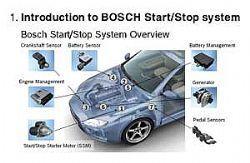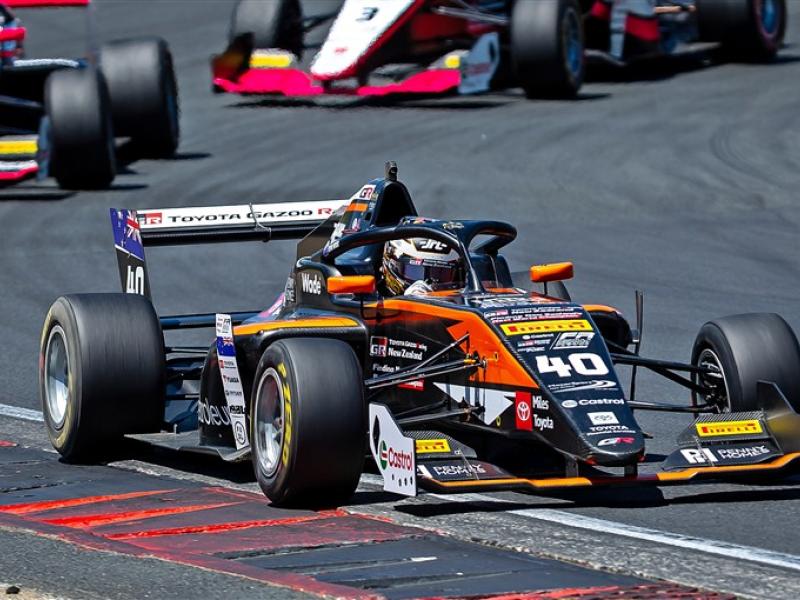Bosch has drawn on its combined competence in drive trains, energy management, and starter technology to develop the Bosch Smart Electronic Start/Stop System. With increasing fuel prices, ever stricter emission limits, and the objective to reduce CO2 emissions further, the Bosch Start/Stop System is an innovative cost-effective way of conserving resources and protecting the environment. The Bosch Start/Stop System automatically stops the engine when the vehicle is stationary, for example at traffic lights or in a traffic jam. The engine is restarted automatically as soon as the driver wishes to move off again, for example in a manual car, by depressing the clutch pedal to put the vehicle back into gear. During a journey of 12-15 second stops over a distance of seven kilometres, the Bosch system reduces fuel consumption and CO² emissions by as much as eight percent, depending on the vehicle. If the stops last longer, the actual saving of CO² emissions and fuel can be significantly higher. For this system Bosch has also designed a specially adapted starter, the Smart Starter Motor. Bosch has considerably increased the specified number of starts of the Start/Stop Starter Motor and, as a consequence, has increased its service life compared with a conventional starter. The more powerful electric starter motor as well as delivering lower noise levels through enhanced meshing mechanics, guarantees safe, fast, and quiet engine starts. The particularly rapid and quiet automatic starting is ensured not only by the high-performance Start/Stop Starter Motor but also by the electronic control of the starting operation and by fuel injection. This rapid starting is so economical that, even with stops of less than a second, it actually saves you money. In spite of its extended functional scope, the starter is compact and remains very easy to integrate in the vehicle. The engine control unit, which is also supplied by Bosch, incorporates the software used to analyse all the relevant sensor data and to switch the engine off and on. Bosch also supplies the crankshaft sensor, which tells the system exactly what position the drive shaft is in. Bosch has only been manufacturing these systems since last year, but already more than half a million vehicles have been equipped with this Start/Stop technology. “Start/stop systems are a cost-effective way of cutting a vehicle’s combined fuel consumption, and therefore its CO2 emissions, by up to five percent,” says Stefan Asenkerschbaumer, president of the Bosch Starter Motors and Generators division. “At present, we anticipate that half of all new vehicles in Europe will be equipped with a start/stop system by as early as 2012.” Bosch is currently working on series development projects with numerous manufacturers. Besides Kia (see page 15), three further automakers are planning to go into series production over the coming months. Bosch has considerably increased the specified number of starts of the start/stop starter and - as a consequence - increased its service life compared with a conventional starter. The more powerful electric starter motor as well as delivering lower noise levels through enhanced meshing mechanics, guarantees safe, fast, and quiet engine starts. In spite of its extended functional scope, the starter is compact and remains very easy to integrate in the vehicle. The engine control unit, which is also supplied by Bosch, incorporates the software used to analyze all the relevant sensor data and to switch the engine off and on. Bosch also supplies the crankshaft sensor, which tells the system exactly what position the drive shaft is in. Bosch start/stop systems can draw on the expertise of the company’s starter technology, drivetrain, and energy management fields. As starter- based systems are largely based on existing components, an excellent cost- benefit ratio is a further argument in their favour. Moreover, unlike other technologies, they are also suitable for cold starts in diesel engines. Bosch offers nearly all the components for systems like this: a specially adapted starter, control software, crankshaft sensor, a battery sensor and a high-performance alternator. Each year, Bosch spends more than 3 billion euros for research and development, and applies for over 3,000 patents worldwide. The company was set up in Stuttgart in 1886 by Robert Bosch (1861-1942) as “Workshop for Precision Mechanics and Electrical Engineering.”
The Bosch Start/Stop System: reducing fuel consumption and CO² emissions
The Bosch Start/Stop System: reducing fuel consumption and CO² emissions
Motorsport
Thursday, 06 November 2008






